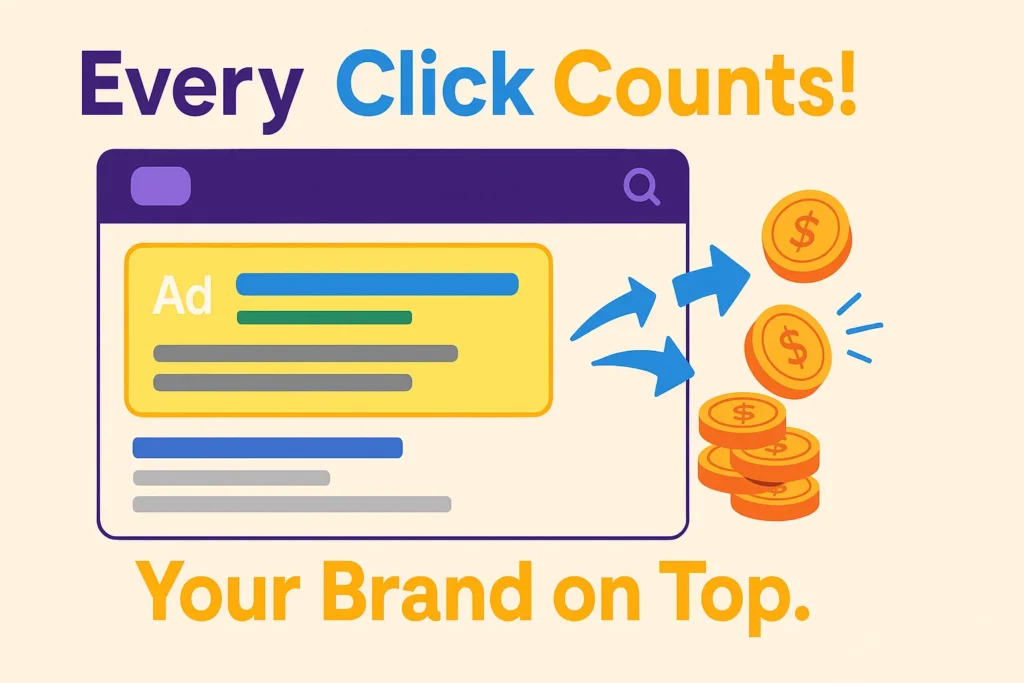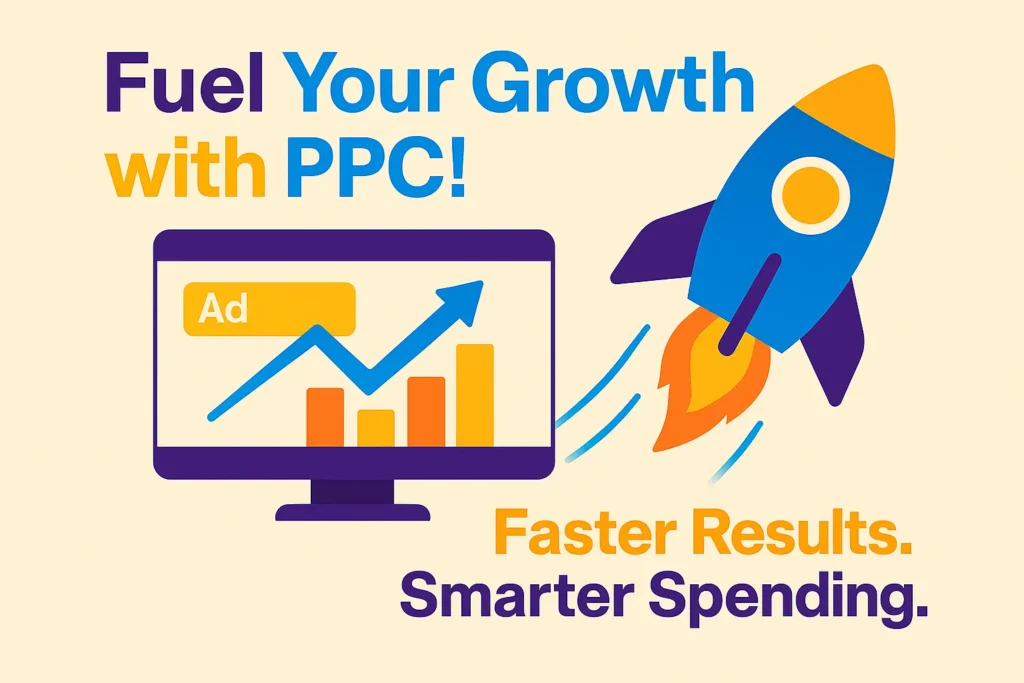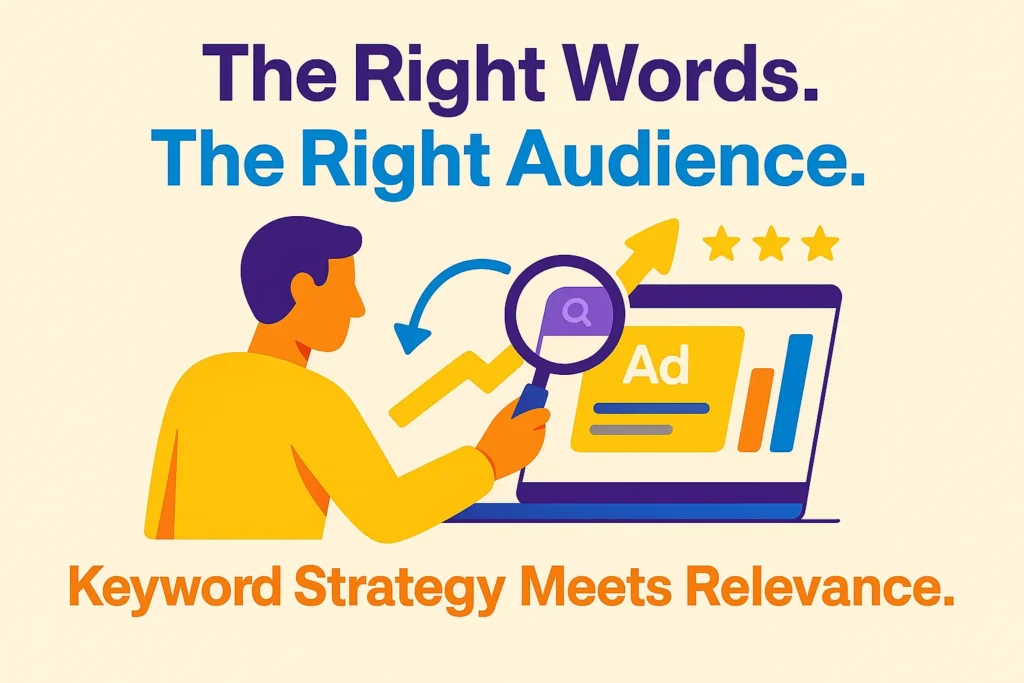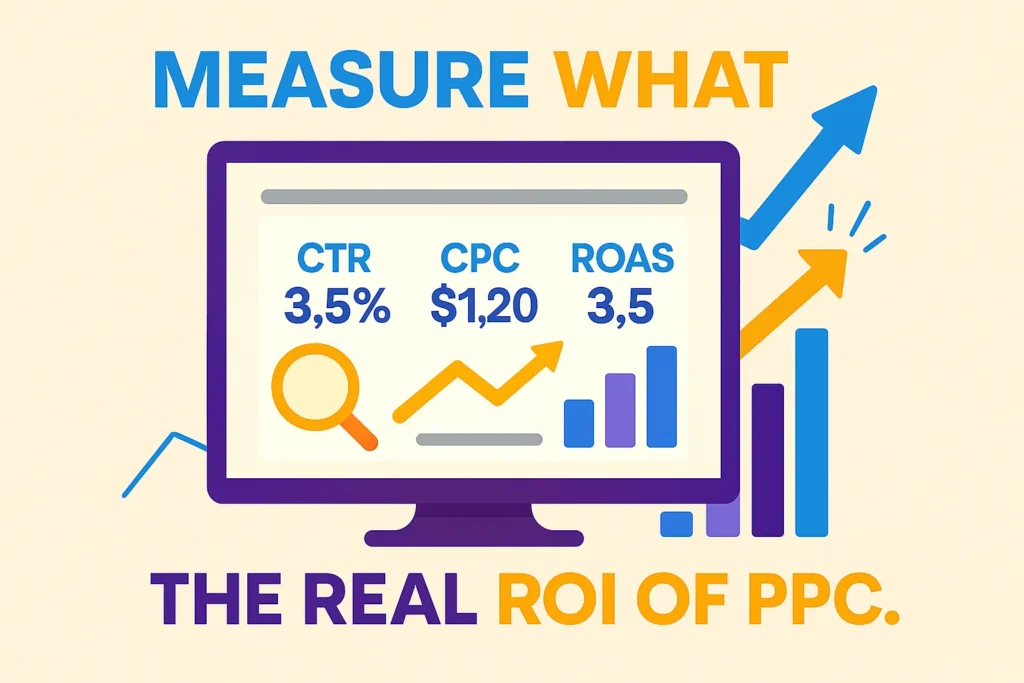PPC Search Engine Marketing: The Smartest Shortcut to Online Success
How PPC Search Engine Marketing Turns Clicks Into Customers
If you’ve ever wondered how some brands seem to appear everywhere online — at the top of Google, on YouTube before your favorite video, or even in that perfectly timed ad right when you’re thinking of buying — the secret weapon is PPC Search Engine Marketing.
In today’s competitive digital world, organic growth alone isn’t enough. You need precision, speed, and a strategy that turns intent into impact. That’s exactly what PPC (Pay-Per-Click) advertising does: it lets you pay only for results, putting your brand in front of people who are actively searching for what you offer.
In this guide, we’ll explore how PPC search engine marketing works, why it’s one of the most powerful digital strategies today, and how you can make every click count.

What Is PPC Search Engine Marketing?
Let’s break it down simply: PPC search engine marketing means paying a small fee each time someone clicks your ad in search results. It’s like renting the best seat in Google’s theater — right on the front row, where everyone can see you first.
When users type a keyword related to your business, your ad shows up at the top of the results page. And because you only pay when someone actually clicks, every dollar goes toward real interest — not random impressions.
The most common platforms are Google Ads and Microsoft Ads (Bing). Together, they dominate global search visibility. PPC can target not only search terms but also locations, demographics, devices, and even times of day.
In short: PPC isn’t about spending money fast — it’s about spending it smart.
Why PPC Is the Engine Behind Fast Business Growth
Unlike SEO, which takes months to build momentum, PPC search engine marketing delivers results immediately. The moment your ad goes live, you can start generating clicks, leads, and conversions.

Top benefits of PPC for business growth:
Instant visibility
No waiting — your brand shows up right when customers search. With PPC search engine marketing, your ad appears at the very top of the results page, even above organic listings. That means users see you first — at the very moment they’re ready to buy or learn more. This instant exposure not only drives quick traffic but also builds brand recognition faster than any other channel. You can literally launch a campaign in the morning and start seeing visitors by afternoon — that’s the power of immediacy.
Laser targeting
Reach users based on keywords, demographics, or even time of day. PPC lets you define your ideal audience with pinpoint accuracy — age, location, device type, interests, and even behavior patterns. Imagine showing your ad only to people in your target city, searching for your exact product, between 6 PM and 10 PM when they’re most likely to convert. This level of control makes your campaigns highly efficient, ensuring your budget reaches only the right eyes. In other words, you’re not shouting into the void — you’re whispering to the people who already care.
Full transparency
You see exactly where your money goes and what it returns. Every click, impression, and conversion is tracked in real-time, giving you full visibility into performance. You can analyze which keywords bring the best ROI, what times of day drive the most engagement, and which ads convert most effectively. This transparency allows for smarter decisions — no more guessing or relying on vague reports. With data at your fingertips, you can continuously fine-tune and maximize your results.
Budget flexibility
You can scale up or pause anytime. Whether you’re working with €10 a day or €10,000, PPC search engine marketing adapts to your budget without losing effectiveness. You can start small, test what works, and then scale your winning ads for exponential growth. And because campaigns can be paused instantly, you’re never locked in — perfect for seasonal promotions, limited offers, or experimenting with new markets. It’s marketing that bends, not breaks, under your control.
Whether you’re a startup or an established brand, PPC gives you complete control over who sees you and when they see you.
The Secret Sauce: Keyword Strategy and Ad Relevance
A successful PPC campaign isn’t about throwing money at ads — it’s about understanding user intent.

Keyword Strategy
Your goal is to align what people search for with what you offer.
Use tools like Google Keyword Planner, Ahrefs, or SEMrush to identify high-performing keywords and analyze cost-per-click (CPC). Start broad, then refine using exact-match and phrase-match keywords.
Ad Relevance
Google rewards relevant ads with higher Quality Scores — meaning lower costs and better positions. Your ad copy should mirror user intent and lead to a dedicated landing page that’s fast, focused, and persuasive.
Even the best ad won’t convert if your landing page feels confusing or slow. Every click must feel like a promise delivered.
Common PPC Mistakes (and How to Avoid Them)
Even skilled marketers fall into PPC traps. Here are the top five mistakes to watch out for:
- Ignoring Negative Keywords – Avoid paying for irrelevant searches.
- No Conversion Tracking – Without data, optimization is guesswork.
- Set It and Forget It – PPC requires ongoing monitoring.
- Weak Ad Copy – Focus on benefits, not just features.
- Generic Landing Pages – Always send traffic to purpose-built pages.
Avoid these, and you’ll already outperform most advertisers in your space.
Measuring Success: The Real ROI of PPC Search Engine Marketing
One of the greatest strengths of PPC is that everything is measurable.
Track metrics such as:
- CTR (Click-Through Rate) – How many people clicked your ad.
- CPC (Cost per Click) – The average amount you pay per click.
- CPA (Cost per Acquisition) – How much each conversion costs you.
- ROAS (Return on Ad Spend) – Your total revenue compared to ad spend.
By analyzing these numbers, you can continuously refine your campaign for better performance. The more data you gather, the more efficient your ads become.

PPC and SEO: The Perfect Power Couple
PPC and SEO aren’t competitors — they’re partners.
While SEO builds long-term organic authority, PPC search engine marketing drives instant traffic and leads.
Use PPC data to guide SEO efforts:
- Identify which keywords convert best.
- Test headlines and CTAs before using them in SEO pages.
- Gain audience insights faster.
Think of SEO as building the road, and PPC as the sports car racing on it.
The Click That Changes Everything
In a world where attention is the new currency, Mass-Data’s PPC Search Engine Marketing services are your shortcut to measurable growth and lasting visibility. We don’t just run ads — we craft intelligent campaigns that connect your brand with real buyers at the exact moment they’re ready to act.
Our team combines data-driven precision, creative strategy, and constant optimization to turn every click into meaningful results. Whether you’re a local business breaking through the noise or a global brand expanding to new markets, we treat your goals as our own.
With Mass-Data, PPC isn’t just another marketing tactic — it’s a growth engine powered by insight, innovation, and impact.
🚀 Ready to grow smarter? Let’s turn your clicks into customers!
Frequently Asked Questions (FAQ)
PPC (Pay-Per-Click) Search Engine Marketing is an online advertising model where you pay only when someone clicks your ad. It’s commonly used on platforms like Google Ads or Bing Ads to drive targeted traffic.
Costs vary depending on competition, keywords, and industry. Some clicks cost under €1, while others (like legal or finance) can exceed €20. The key is optimizing your Quality Score and targeting.
Neither is “better” — they work best together. PPC provides fast visibility and testing opportunities, while SEO builds long-term organic presence.
You can use tools like Google Analytics, Google Ads dashboard, and conversion tracking to measure CTR, CPC, and ROI. These help you see exactly what’s working.
Absolutely! PPC is scalable. You can start with a small daily budget, test campaigns, and grow based on data. Many small businesses see faster ROI from PPC than from traditional ads.